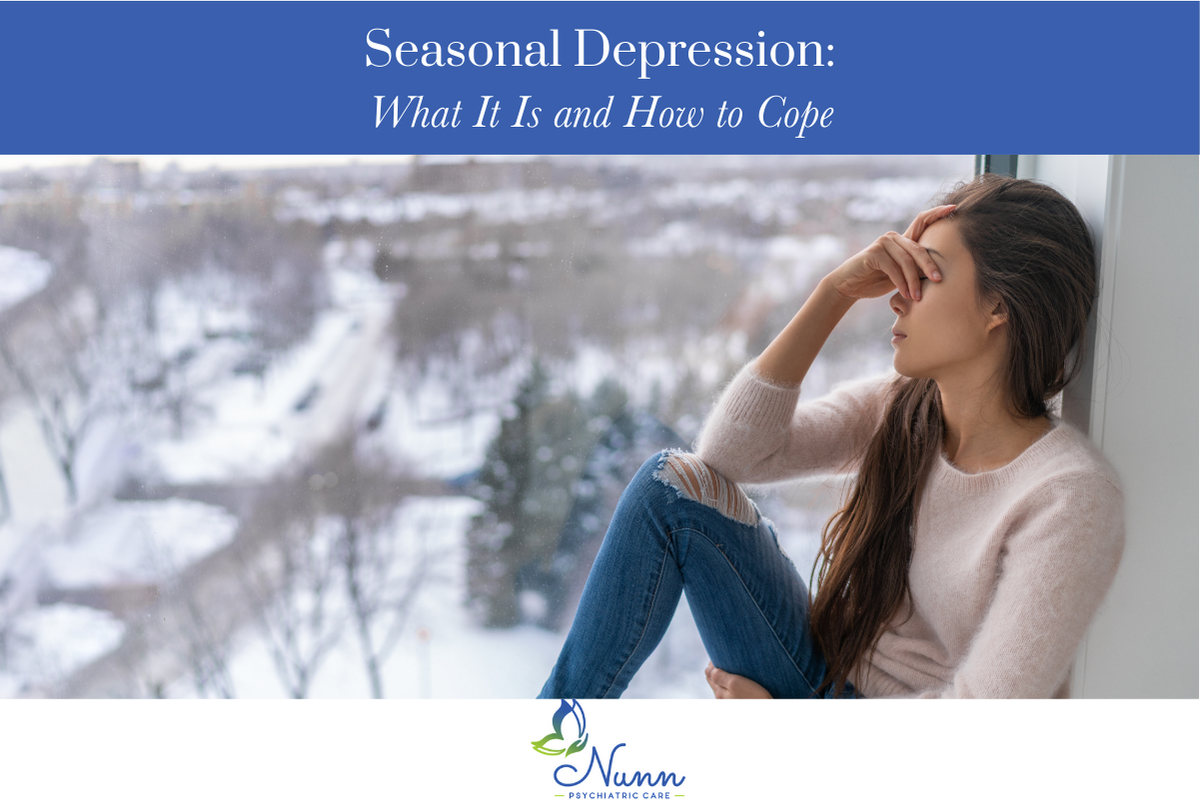
What Is Seasonal Depression?
Seasonal Depression, commonly referred to as SAD, is a type of depression that follows a seasonal pattern. It typically begins in the late fall or early winter and subsides during the spring and summer months. Although it can occur at any time of the year, the most common form is winter-onset SAD.
Symptoms of Seasonal Depression include:
- Persistent feelings of sadness, hopelessness, or emptiness
- Loss of interest in activities once enjoyed
- Fatigue or low energy, even after a full night’s sleep
- Changes in sleep patterns, such as oversleeping or insomnia
- Difficulty concentrating or making decisions
- Changes in appetite, particularly cravings for carbohydrates
- Weight gain or loss
- Social withdrawal
- Feelings of worthlessness or guilt
The exact cause of Seasonal Depression is still unknown, but it is believed to be related to changes in light exposure. Reduced sunlight during the winter months can disrupt your biological clock, or circadian rhythm, and lead to feelings of depression. It may also affect serotonin and melatonin levels in the brain, both of which play crucial roles in mood regulation and sleep.
Who Is at Risk?
While anyone can develop Seasonal Depression, certain factors can increase the likelihood of experiencing it. These include:
- Geography: People who live farther from the equator are more likely to develop SAD due to the reduced sunlight during winter.
- Family History: Those with a family history of depression or SAD may be more susceptible.
- Gender: Women are more likely to experience Seasonal Depression than men.
- Existing Mental Health Conditions: If you already struggle with depression, anxiety, or other mental health conditions, you may be more prone to seasonal changes in mood.
How Is Seasonal Depression Treated?
At Nunn Psychiatric Care, we believe that Seasonal Depression is treatable with the right combination of therapies. Treatment options include:
1. Light Therapy
Light therapy is one of the most common treatments for SAD. It involves exposure to a lightbox that mimics natural sunlight, helping to reset your biological clock and improve mood. Light therapy is most effective when used daily, especially in the morning, and under the supervision of a healthcare provider.
2. Cognitive Behavioral Therapy (CBT)
CBT is a type of talk therapy that focuses on changing negative thought patterns and behaviors associated with depression. It can be particularly effective in helping individuals with SAD develop coping strategies and reduce the impact of seasonal triggers.
3. Medications
In some cases, medications such as antidepressants may be prescribed to help regulate serotonin levels and alleviate depressive symptoms. Selective serotonin reuptake inhibitors (SSRIs) are commonly used to treat SAD, and they may be most effective when combined with other forms of therapy.
4. Lifestyle Changes
Simple lifestyle adjustments can make a big difference in managing Seasonal Depression. These include:
- Exercise: Regular physical activity can help boost your mood and energy levels.
- Healthy Diet: A balanced diet rich in whole foods can help maintain stable energy levels and support mental well-being.
- Sleep Hygiene: Maintaining a consistent sleep schedule and creating a restful environment can help combat fatigue and improve sleep quality.
- Social Support: Staying connected with friends and family, even when you feel like withdrawing, can provide emotional support and improve your mood.
How Nunn Psychiatric Care Can Help
If you’re struggling with Seasonal Depression, it’s important to remember that you don’t have to face it alone. Nunn Psychiatric Care is here to help you find the support and treatment you need. Our compassionate team of mental health professionals will work with you to create a personalized treatment plan tailored to your needs. Whether you’re looking for therapy, medication management, or a combination of approaches, we’re dedicated to helping you feel better and regain control of your life.
Comprehensive Q&A Section
Q: What causes Seasonal Depression?
A: Seasonal Depression is believed to be caused by changes in light exposure, which can disrupt your body’s internal clock (circadian rhythm) and affect serotonin and melatonin levels. These changes can lead to feelings of sadness, fatigue, and depression during the fall and winter months.
Q: How do I know if I have Seasonal Depression or just “winter blues”?
A: While the “winter blues” may involve feeling a little down or low-energy during the colder months, Seasonal Depression is more severe and persistent. If you experience ongoing feelings of sadness, loss of interest in activities, fatigue, and changes in appetite or sleep patterns that interfere with your daily life, you may be dealing with SAD. A mental health professional can provide an accurate diagnosis.
Q: Is light therapy safe?
A: Light therapy is generally considered safe, but it should be used under the guidance of a healthcare provider. Some people may experience mild side effects such as headaches, eye strain, or nausea, but these usually subside after a few days of use. It’s important to use the lightbox at the recommended distance and duration to avoid potential harm.
Q: Can Seasonal Depression be prevented?
A: While it may not be possible to prevent Seasonal Depression entirely, there are steps you can take to reduce your risk. Regular exercise, maintaining a healthy diet, staying connected with others, and practicing good sleep hygiene can all help minimize the impact of seasonal changes. Additionally, starting light therapy or seeking professional support early in the season can help manage symptoms before they worsen.
Q: When should I seek help for Seasonal Depression?
A: If your symptoms of Seasonal Depression are affecting your daily life, causing distress, or lasting for several weeks, it’s time to seek help. A mental health professional can provide a diagnosis and recommend appropriate treatment options.
Contact Information
If you or someone you know is struggling with Seasonal Depression, please reach out to us at:
Nunn Psychiatric Care
113 Lincoln Dr
Hodgenville, KY 42748
Phone: (270) 358-6221
Our team is here to help you feel your best all year round. Don’t let Seasonal Depression control your life—let’s work together to find solutions that work for you.
By understanding the signs of Seasonal Depression and seeking help early, you can manage your symptoms and find relief during the colder months. At Nunn Psychiatric Care, we’re committed to providing the highest quality of care to help you live a happier, healthier life.
